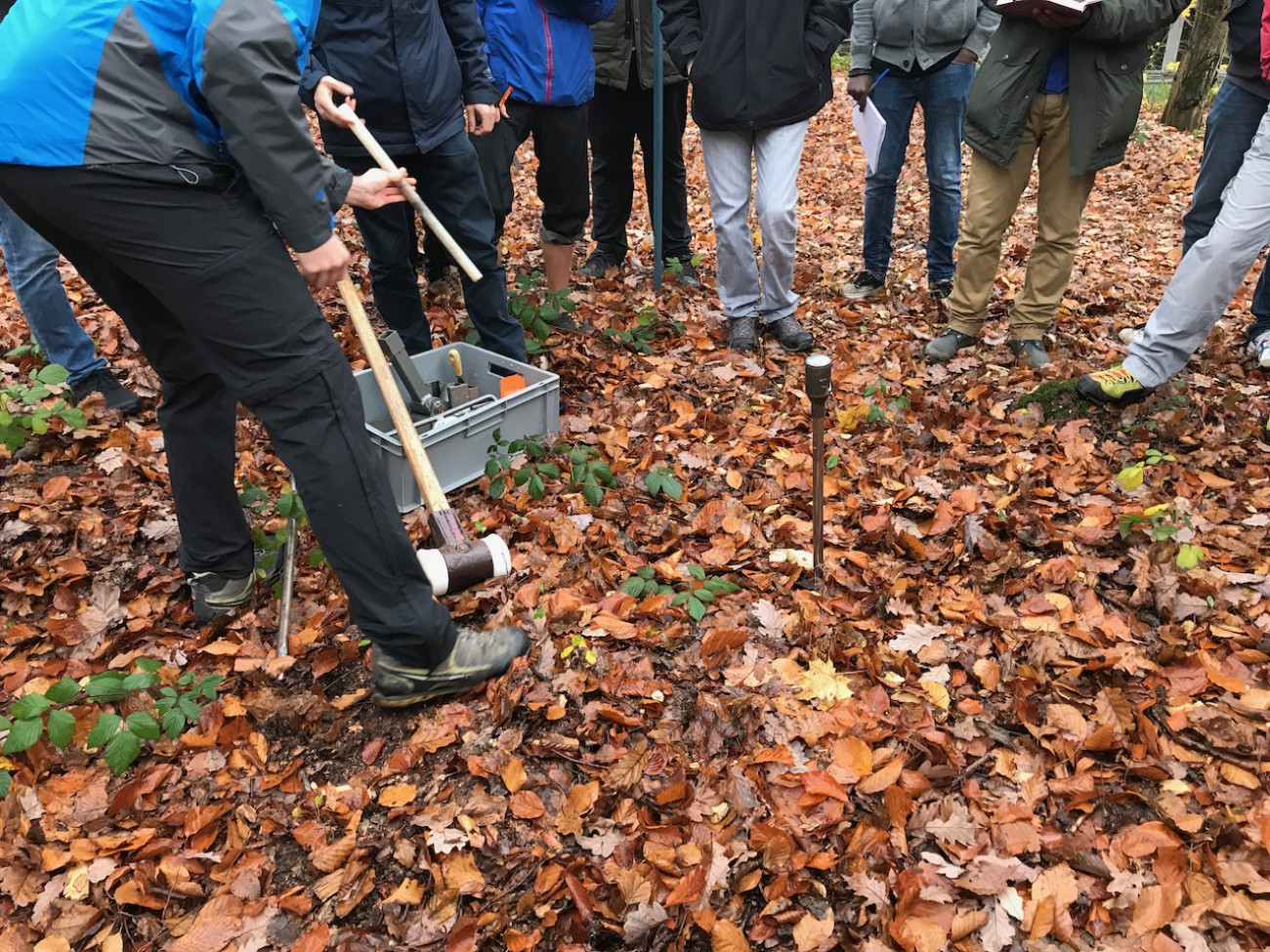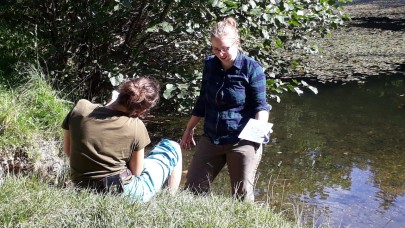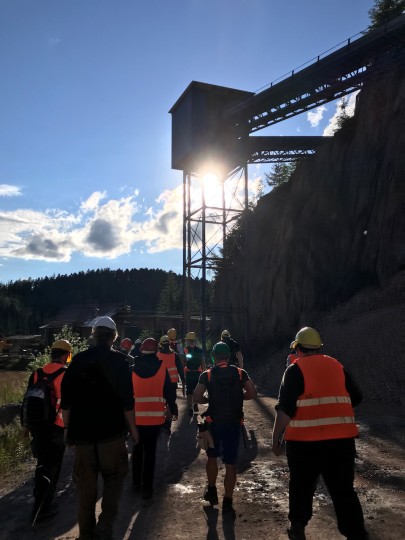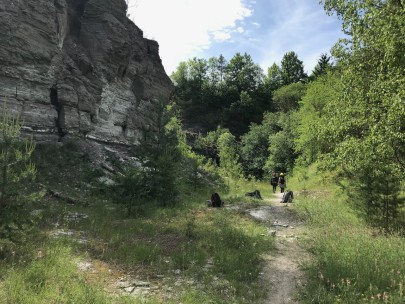Published:
Excursions and field trips in the degree programme “Applied Geosciences”
The fact that practical elements play an important role in this degree programme is already evident from the name of the programme itself: it is about applied geosciences. Ambassador Judith reports on what makes her degree programme special:
Judith,
Applied Geosciences B.Sc.
I think it is awesome how diverse my studies are. I do not just spend my time in front of my desk, in lecture halls, or labs, but where I like to be: In nature.
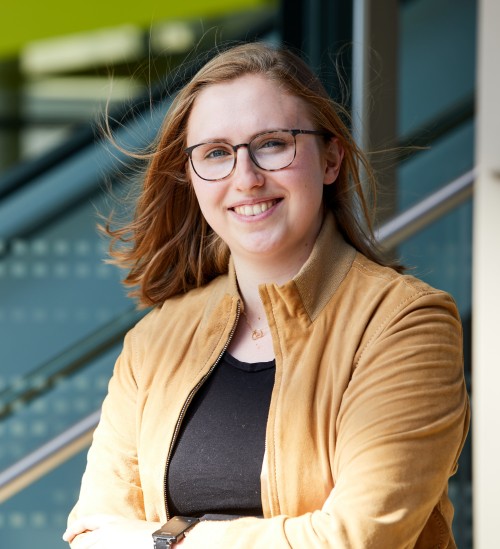
“There are many different types of courses in my degree programme: practical field courses, exercises, practical laboratory courses, seminars, and, of course, lectures. But what makes my degree programme very special are excursions and field trips. These can even be several days long. As the name suggests already, we go ”into the field": this can be nearby or in the Black Forest, the Harz Mountains or Fuerteventura. Sometimes we even go all over the world, for example to China or Iceland. These excursions are, however, voluntary.
You are not stuck at your desk usually, but leave your usual surroundings, to go out into nature and experience what you learned in your lectures in the real world. Unlike in exercises at university, you go into the real environment. You can think of it a bit like lessons during hiking: You walk around with the group (about 10-30 people), often the whole day, and make stops where you observe things and get explanations about it. You write notes about it in a field book (some kind of notebook) and, depending on the excursion, you simply hand it in or write a report or an exam about it. In the course of your studies, you will work more and more independently in the excursions and have more responsibility. The last excursions in the Bachelor's programme are the so-called mapping courses: You go on these independently in small groups of two to four people and your supervisors will only visit your group every few days. Then, you can ask questions then or during debriefings in the evening. This is how you could be taught to work independently and to apply what you have learned.
I think it is really cool how diverse my degree programme is. I do not just spend my time in front of my desk, in lecture halls or laboratories, but where I love to be: in nature. After all, my degree programme is called “Applied Geosciences”, it deals with the scientific exploration of the earth among other things. You can only really understand that if you look at the earth in real life and not just as a photo on a screen, right? What I also find incredible is that you go on trips with your fellow students, sometimes even to other countries, and experience lots of cool things together! It is almost a bit like a school trip, only cooler.
B. Sc. Applied Geosciences
You can find more information about the degree programme “Applied Geosciences” in the programme descriptions or on the website of the Institute for Applied Geosciences. You can then check whether the degree programme really suits you with the help of an OSA – Online Self Assessment.
Obviously, university courses do not continue in the form of school classes. But which courses are offered at uni and what is behind the uni-lingo? Our ambassadors give you an overview and show you which events are particularly practice-oriented.
(Practical) types of courses in the degree programme

Judith
Hello, my name is Judith and I’m doing a degree in applied geosciences at TU Darmstadt. I’ll tell you openly and honestly why I decided to come to Darmstadt – the City of Science – to go to university! If you look for me on campus, you’ll most likely find me at the Botanical Garden campus. Not just because it’s particularly beautiful there, but because that’s also where my department is located.

